

| West Africa’s economy is booming compared to its sub-Saharan counterparts. This bodes well for the region, which can leverage improved output, trade growth and the recovery of international oil and metal prices to improve its economic outlook. Pulling the region forward is Nigeria, which has reported 2.3% year-on-year GDP growth in the third quarter of 2019. Not far behind are Ghana and Guinea and other countries in the West African Monetary Union. Understanding how West African nations can use this chance to overcome structural challenges and break new ground is one of the goals of the Centre for the Study of the Economies of Africa (CSEA), which recently signed a memorandum of understanding (MoU) with UNCTAD, becoming the organization’s fifth Centre of Excellence. The goal, says the head of UNCTAD’s Africa and least developed countries division, Paul Akiwumi, is to develop closer ties through joint research and capacity building activities. “Our Centres of Excellence serve as network hubs for capacity building in the African and Asian regions.” “They provide opportunities for policy practitioners and stakeholders from the least developed countries and other developing economies to benefit from targeted and practical training on trade and development-related themes,” Mr. Akiwumi said after signing the agreement on 17 December in Abuja, Nigeria. “We are delighted to join hands with the Centre for Study of African Economies, which brings excellent research-capacities as well as strong regional knowledge of the development challenges of Africa”. CSEA executive director Dr. Chukwuka Onyekwena said: “We are confident that our collaboration with UNCTAD will significantly enrich our work and allow it to reach a wider audience.” Hard at work The agreement went into immediate effect in the shape of a workshop on fostering productive capacities, structural economic transformation and export diversification in West African Economies, held just after the MoU was signed, on 17 and 18 December. West African policymakers came together to identify policies and measures that could assist their economies in overcoming their commodity-based growth pattern. “The route to doing so is through planned and concerted structural transformation and export diversification,” Mr. Akiwumi said. As the workshop highlighted, domestic efforts alone may not be enough to foster productive capacities and structural economic transformation. Mr. Akiwumi told participants “a big push for international support mechanisms is urgently needed”. UNCTAD is advocating for new international support measures that go beyond project-based financing and fragmented technical assistance. “Only this will change the status quo and really allow West Africa to take advantage of its growth potential,” Mr. Akiwumi added. Future collaboration CSEA will join other UNCTAD Centres of Excellence at annual meetings to identify new areas for partnerships and joint research, and for exchanges of experiences and best practices. “This workshop on export diversification in West Africa is only one example of an issue where both of our organizations have done important analytical work, which can benefit policy-makers in the region,” Mr. Onyekwena said. “We look forward to carrying out more joint research.” Drawing on their different strengths and expertise in various sectors, including sustainable development, poverty alleviation and policy cooperation, the UNCTAD Centres of Excellence will leverage South-South cooperation to provide better targeted policy advice and technical assistance to developing countries. Outcome and Recommendations At the end of the workshop, participants identified a number of policies and measures needed to build productive capacities, and to foster export diversification and structural transformation. This included the identification of sectors and products with export potential, as well as the policies and measures needed to promote them. Download the full outcome document below. |
On 29 October 2019, UNCTAD held its annual Centers of Excellence strategic meeting in Geneva, Switzerland. CSEA has been selected as a UNCTAD Regional Center of Excellence (CoE). The CoE’s with different strengths and expertise in various sectors including sustainable development, poverty alleviation and policy cooperation across developing countries. The CoE would leverage South-South cooperation as a means of providing technical assistance, and more importantly share successful experiences and best practices in trade and development policies.
The Annual Strategic meeting brought together all Coordinators of the Centers of Excellence
to engage formally with UNCTAD staff, brief member States directly on the activities undertaken at the respective Centers, and further enhance synergies among themselves to ensure coherence and continuity in the work planning.
The primary objectives of the meeting Include:
· To exchange views on how to best manage, coordinate and run Centers of Excellence on a sustainable basis as possible, including through financial resources mobilization;
· To sensitize member States to the work carried out in the CoE and enable the cross-fertilization and sharing of good practices among key national institutions and stakeholders from other countries, and international experts;
· To provide a unique venue and convening mechanism for information sharing and engagement, including through the scheduled training courses for the dissemination of innovative policies and initiatives; and
· To present opportunities for the development of partnerships and joint activities with stakeholders in other value-added activities engaged with strategic, export-oriented sectors, including fisheries and aquaculture, as well as the pharmaceutical and other healthcare industries.
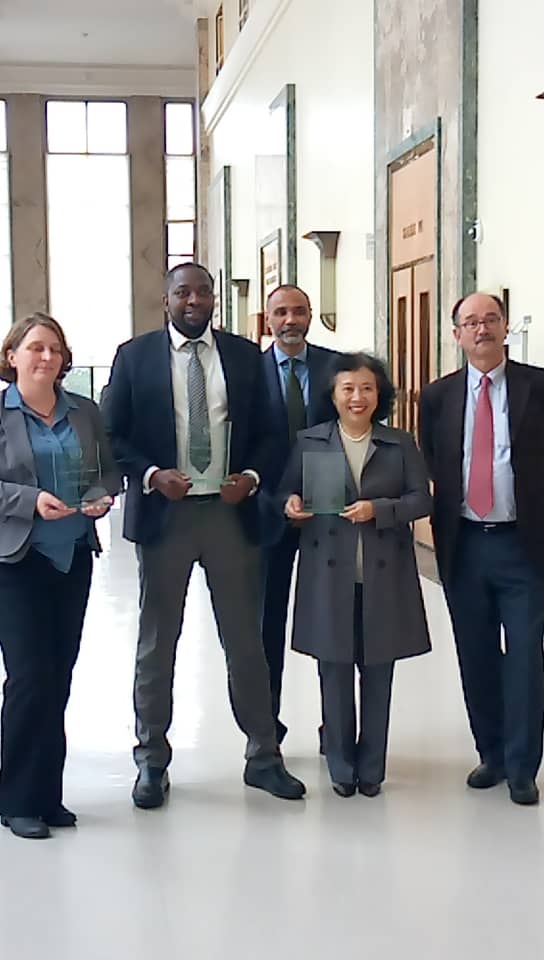
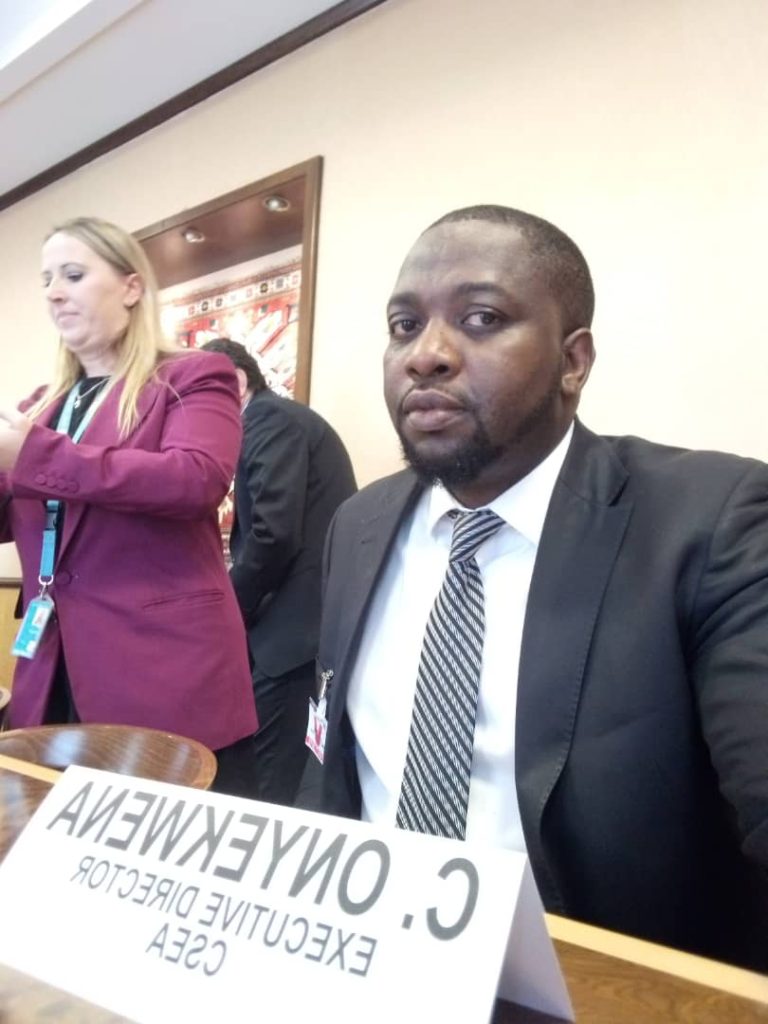
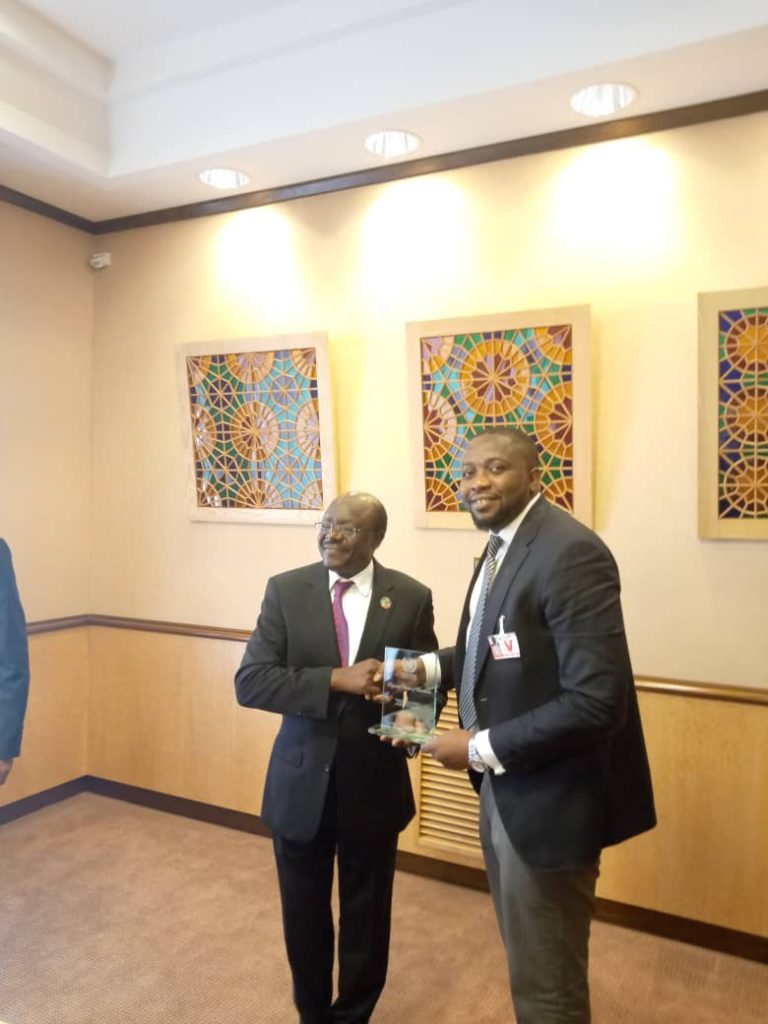
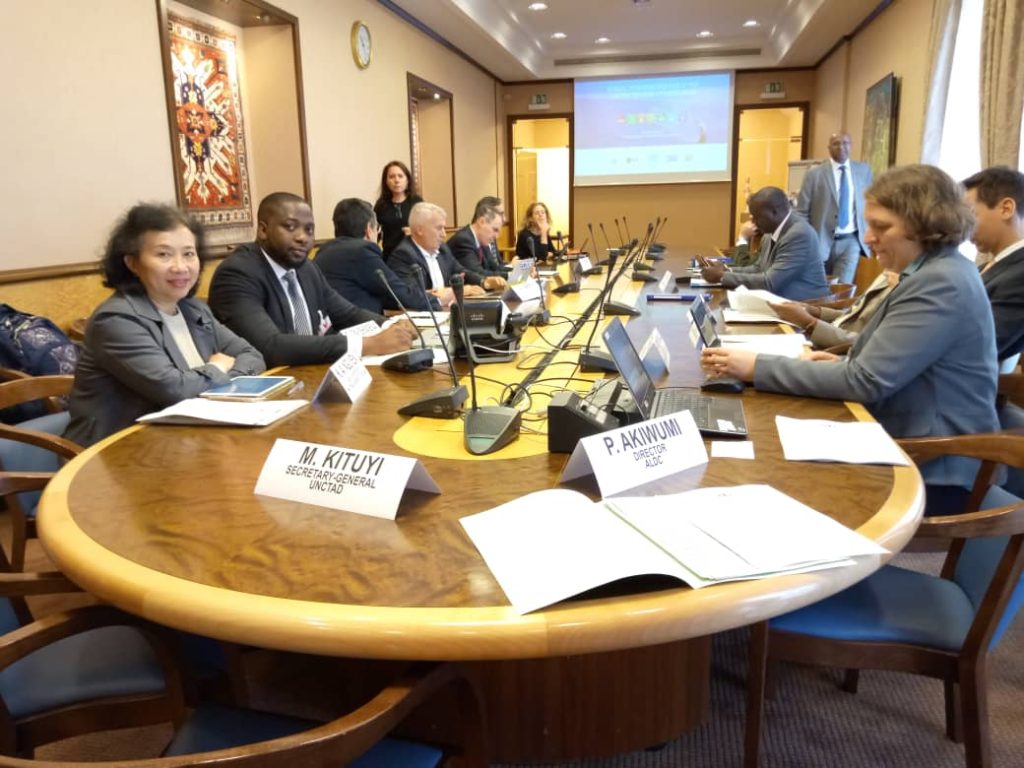
Dr. Chukwuka Onyekwena joined other participants at the “3rd Steering Committee Meeting for the South-South Global Thinkers: the Global Coalition of Think Tank Networks for SSC”, on November 7, 2019 in Antananarivo, Madagascar.
The meeting was organized along the side-lines of the 11th African Private Sector Forum, organized by the UNOSSC and UNDP. It provided a platform for a comprehensive review of the policy and legal issues discussed during “the Role of South-South Cooperation in Promoting and Deepening Trade and Investment in Africa” and identify further research questions that could feed into the development of a comprehensive study South-South investments.
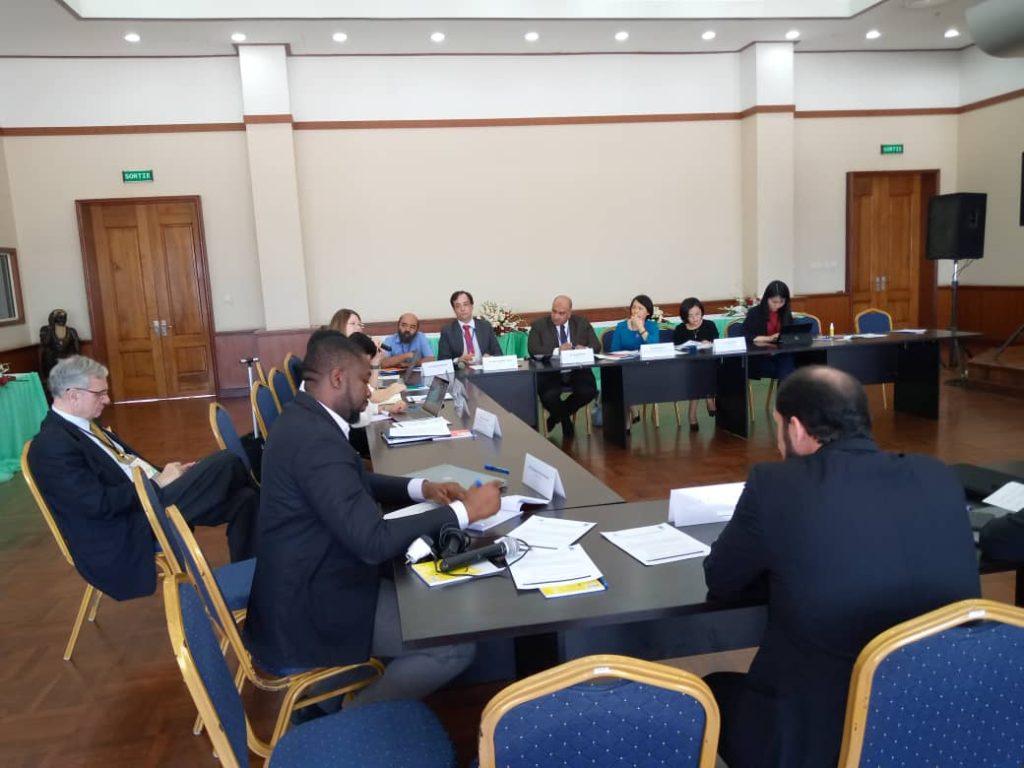
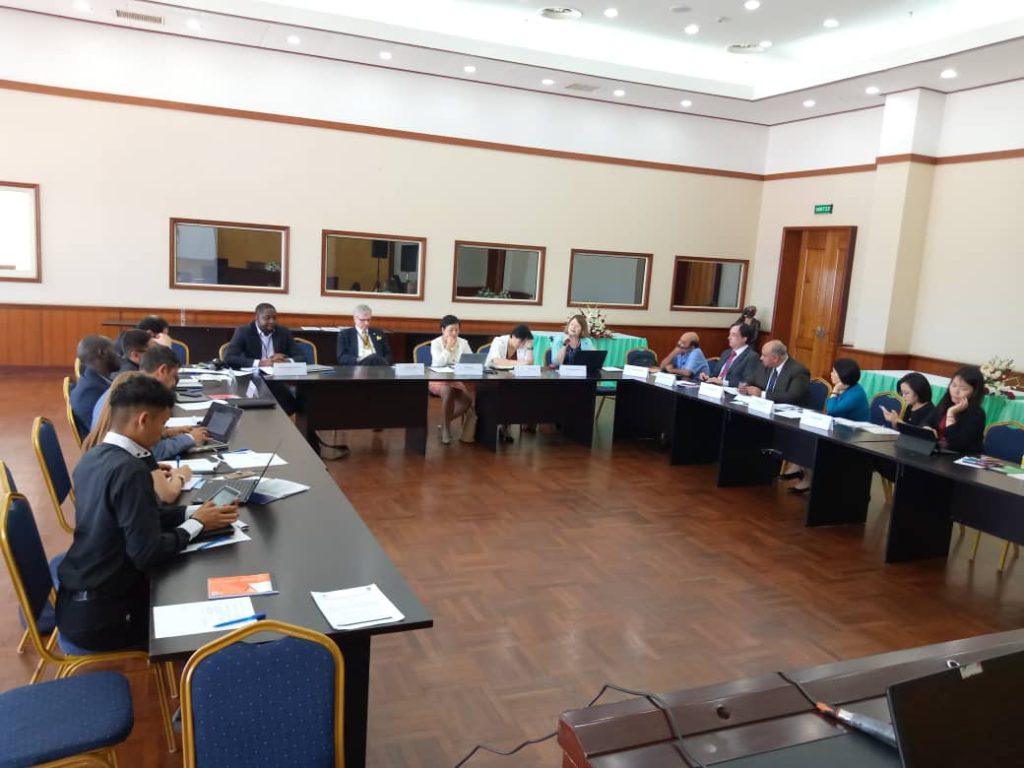
Dr. Chukwuka Onyekwena participated at the workshop on “The Role of South-South Cooperation in Promoting and Deepening Trade and Investment in Africa – Promoting Conducive Policy and Legal Environments in Africa” during the 11th African Private Sector Forum. The event was organized by the United Nations Office for South-South Cooperation (UNOSSC) and the United Nations Development Programme (UNDP) in partnership with the African Union Commission from 5-8 November 2019 in Antananarivo, Madagascar.
The workshop provided a platform for discussions on the relevance and the need for the adaptation of the existing instruments for investment in the context of the African Continental Free Trade Agreement (AfCFTA).
Dr. Onyekwena participated in the session on “South-South Investment:Public and Private Partnerships and Perspectives within the framework of the AfCFTA”. Discussions focused on identifying opportunities, challenges and risk management for South-South trade and investments in the Africa region within the framework of AfCFTA.
Other workshop sessions included:
South-South Investment and Trade for the SDGs: the discussion focused on regional and national trends with country perspectives and examples of practices and initiatives that worked and did not work, plus future needs and priorities for South-South investment.
Digital Economy and its contribution to South-South Investments and trade: discussions on how digitalization and the range of available digital technologies could facilitate the effective implementation of the AfCFTA. The session addressed risks so that AfCFTA delivers on its goals which include boosting intra-African trade, creating jobs and promoting structural transformation for the implementation of the SDGs.
Dr. Chukwuka Onyekwena participated at the workshop on “The Role of South-South Cooperation in Promoting and Deepening Trade and Investment in Africa – Promoting Conducive Policy and Legal Environments in Africa” on 5 November 2019, in Madagascar, organized by the United Nations Office for South-South Cooperation (UNOSSC) and the United Nations Development Programme (UNDP) in partnership with the African Union Commission.
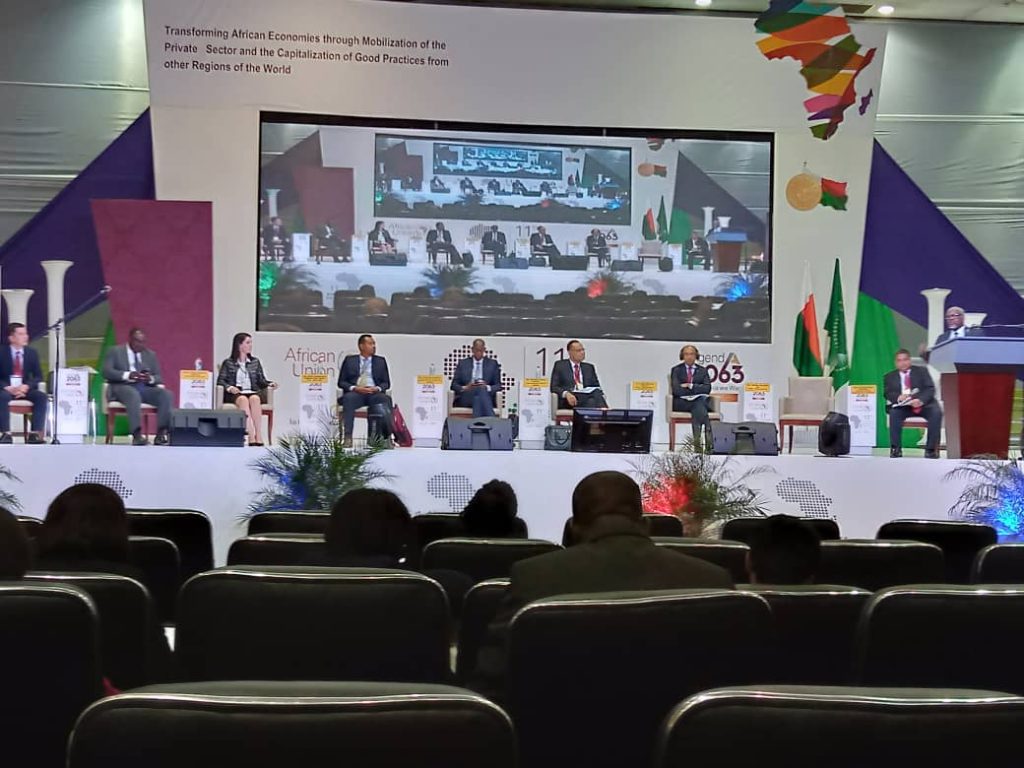
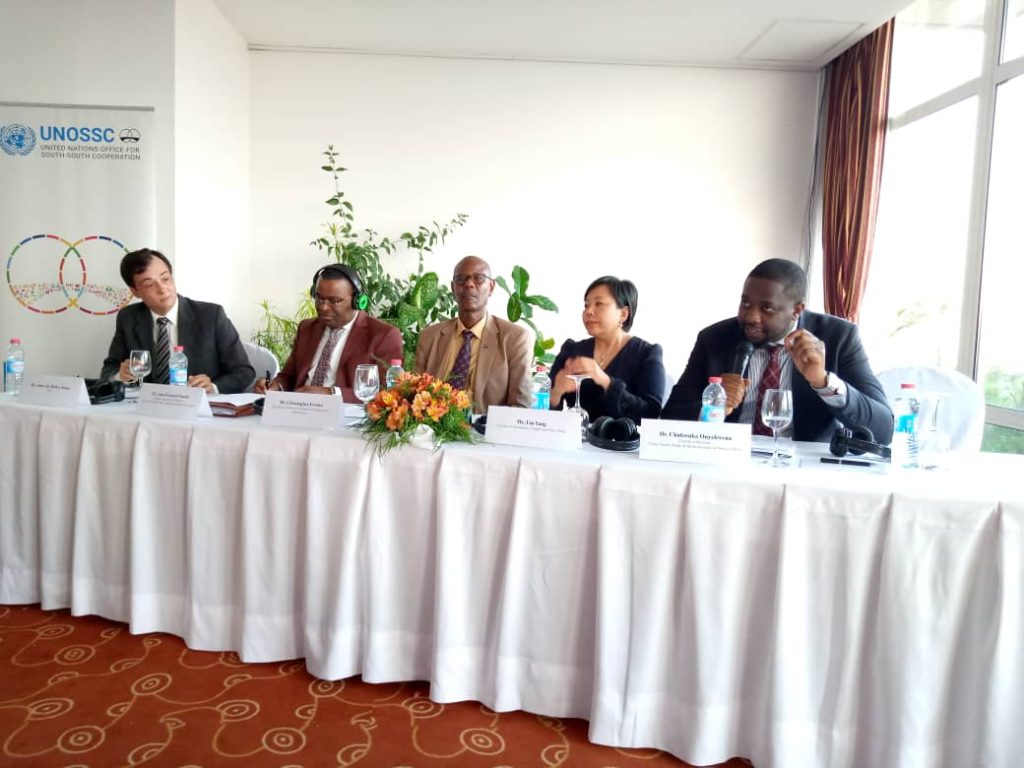
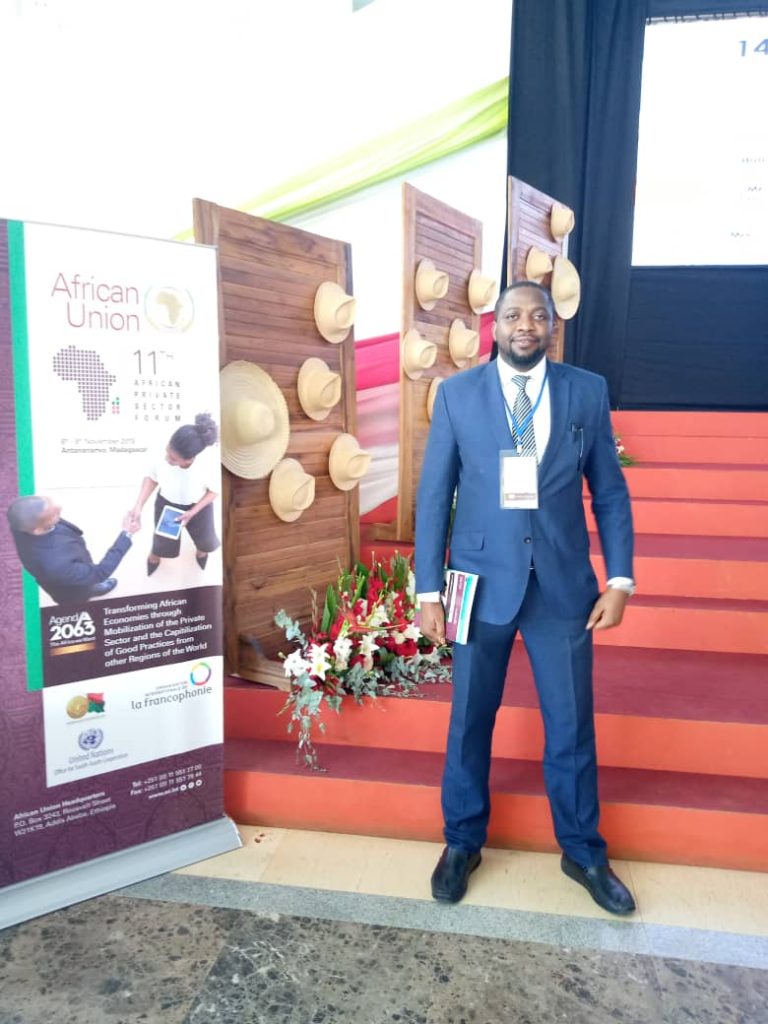
The 11th meeting of the Africa Policy Circle (APC) held in Lilongwe, Malawi from October 10 to 11 2019, under the theme “Sustainable African Cities of the Future”. Specifically, this theme seeks to bring the urban transport agenda together with the urban development agenda to the forefront of sustainable development.
The meeting also provided a platform for participants to deliberate and propose actionable recommendations on sustainable urbanization around the key features of urban life in Africa. Precious Akanonu participated in this event and presented one of the policy briefs agreed at 10th APC Meeting on “Strengthening Resilience of Africa’s Urban Poor.
